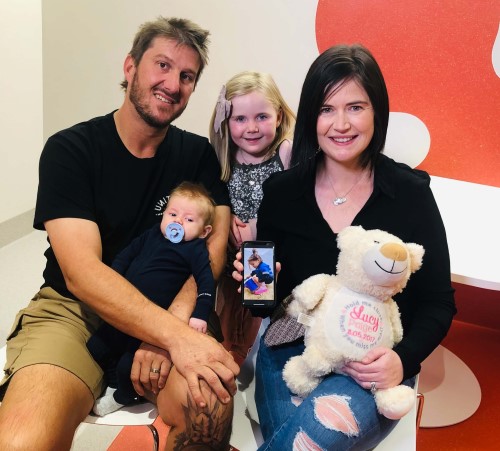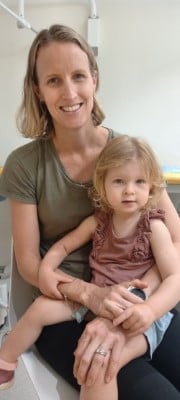FluBub Study
A major highlight of 2020 has been the launch of the FluBub Study - the first step in The Kids Research Institute Australia's bold influenza research program. This study aims to provide babies worldwide with access to life-saving flu vaccines from just eight weeks of age.
Information gained from FluBub will play an essential role in helping to understand how the immune system responds to its first exposure to flu proteins, either through a vaccine or the infection. We also hope it will help pave the way for babies to receive the flu vaccine at two months of age instead of the current six months as per the National Immunisation Program, providing protection to those who are most vulnerable to influenza and its life-threatening complications.
This ground-breaking research was made possible thanks to attendees at the 2019 Telethon Lexus Ball, who supported the Institute’s influenza research program after being inspired by the heart-breaking story shared by the DeLuis family. Their beautiful two-year-old daughter Lucy passed away from influenza in July 2019 and her family are now determined to support research that will develop more effective weapons against the disease.

DeLuis family with baby Ollie at their FluBub appointment
Lucy’s baby brother is now participating in the research inspired by his big sister – little Ollie was signed up to FluBub Study before he was even born! Mum Rhiannon said they wanted to take part because their ultimate wish is that when her children grow up and have families of their own, the idea of a child dying of the flu will be inconceivable.
The FluBub Study team are looking for 150 healthy mothers and their babies to take part in the intial stage of this study. Babies need to be aged 6-12 weeks and not yet received their first scheduled vaccinations to take part.
For more information or to register your interest, please email flububstudy@telethonkids.org.au
INFORM Study

The INFORM Study began in 2018 and aims to understand more about respiratory syncytial virus (RSV). RSV is a common virus that typically causes a cold-like illness in older children and adults but can cause serious disease in babies and young children. It is the most common cause of bronchiolitis (inflammation of the small airways in the lung) and pneumonia (lung infection) in babies and can result in the need for hospitalisation. There is currently no vaccine to prevent RSV so this is a key focus area for Vaccine Trials Group researchers.
As part of the INFORM Study, 4000 nose swab samples are being collected from children like Willow (pictured) who are aged under four years and located in one of the 15 participating countries. The swabs are already routinely collected as part of patient care, and here in Perth we aim to collect 50 swabs over the winter RSV season each year.
In 2020, we saw very little RSV circulating throughout the community due to COVID-related restrictions such as closed borders and social distancing. Cases of RSV identified through Perth Children's Hospital were limited - something we would never have expected! We have an additional two years to complete this study so it will be interesting to see what 2021 brings us in terms of RSV circulation.
RSV Study for Toddlers
The RSV Study for Toddlers is investigating a potential vaccine to prevent RSV disease in young children aged between 12-24 months. It is hoped that the study vaccine will stimulate the immune system to provide protection against the virus - impacting the health of young children on a global scale.
Participants in the study are monitored for two years, especially through the RSV season to collect data on any respiratory symptoms experienced post vaccination. This year we have farewelled our 2019 participants and will continue to monitor our 2020 participants for another season.
A big thank you goes out to all the families who kindly participated in our RSV Study for Toddlers.
